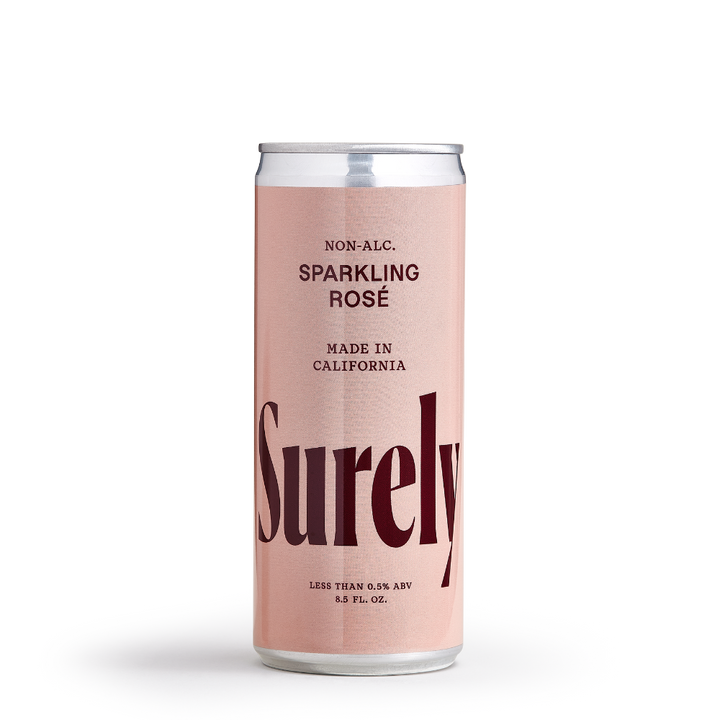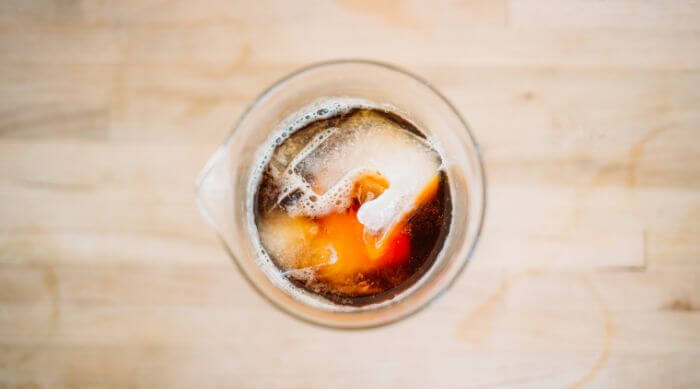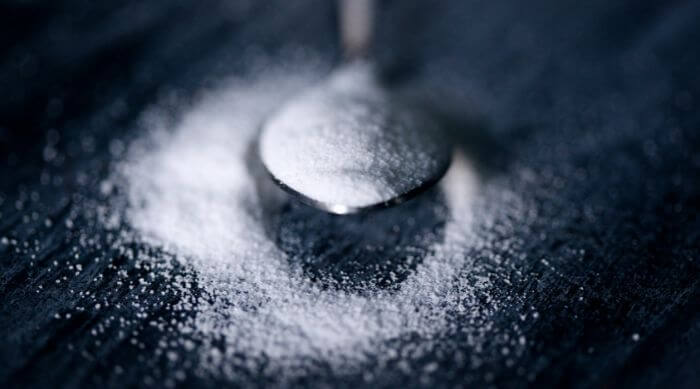A mixed drink with diet soda and alcohol is one of the most popular drink orders out here. Many find it appealing because of the idea that you’re getting a healthier cocktail without sugary soda and the calories that come with it.
Whether it’s actually better for you is up for debate, especially when it comes to your rate of alcohol absorption. Let’s take a look at whether diet soda and alcohol do more harm than good, especially if you’re trying to reduce your alcohol intake.
Non-Alcoholic Red Blend

$24.99
Smooth tannins with red fruit of raspberry and plum, rounded out with light finish of vanilla and oak. … Read More
Table of Contents
The Health Effects of Diet Soda and Alcohol
The Health Effects of Diet Soda and Alcohol
Diet beverages come with few to no calories compared to regular Coke products and other soft drinks, but the health impacts of sugar-free sodas get murkier from there.
Let’s get one thing out of the way first. There’s no evidence that moderate diet soda consumption is inherently bad for you. A can of your diet drink of choice per day isn’t likely to do you any harm, and there’s no solid link between limited use of artificial sweeteners and cancer.
But as with everything else, moderation is key. Large amounts of artificial sweeteners like aspartame in particular may increase your cancer risk, especially for those with diabetes. Large quantities of these sweeteners mess with your blood glucose levels and affect overall metabolism.
They can also mess with your dental health. Limited studies show drinking many diet drinks may increase your risk of cavities. Regular soda has the same negative dental effects, so if you’re worried about your teeth, it’s best to avoid soda in general.
Diet soda also shouldn’t be treated like a magical fix for weight management. While you’re sipping on fewer calories vs. a sugar-sweetened soda, studies show you may compensate for that with extra calories elsewhere.
That could be thanks to the effect of artificial sweeteners on your brain. When your brain tastes something sweet, whether it’s full-sugar or artificially sweet, it reacts in similar ways. That can make it want to crave more sweets.
Diet mixers aside, the health effects of alcohol are well-studied. Moderate drinking is likely fine for most healthy Americans, but binge drinking and heavy drinking don’t come with any good news.
Drinking too much can lead to permanent liver damage, increase your risk of heart disease, and put you at risk for a number of chronic conditions. It can lead to weight gain, impact your sleep, and mess with you in the short-term if you wake up with a nasty hangover.
Put the two together, and the calories saved don’t sound all that great anymore, especially if you’re getting into heavy drinking territory.
Diet Soda May Cause You to Get Drunk Faster
Combining diet soda and alcohol comes with an additional quirk that has less to do with your overall health and more to do with science.
Drinking diet soda with your alcoholic beverages has the potential to affect the rate of alcohol absorption in your body.
Turns out, sugar slows down the rate of absorption of alcohol in the bloodstream. You’ll need fewer drinks mixed with diet soda to get to higher breath alcohol concentrations (BrAC). In plain terms, you may get drunker faster.
According to a study from Northern Kentucky University by cognitive psychologist Cecile Marczinski, drinking diet soda and alcohol is similar to drinking alcohol without a mixer.
The study found that average BrAC was at its highest for both men and women when diet soda was involved in mixed drinks.
Participants in the study didn’t notice any difference, either, which could mean more cases of drinking and driving. It’s never good to underestimate how drunk you are.
Quick note: BrAC measures alcohol content on your breath via a breathalyzer. Blood alcohol content (BAC) measures alcohol content via blood test or urine. Both are accurate tests, so breathalyzers are a suitable way for law enforcement to determine if you’re over the legal limit.
Interestingly, mixing alcohol with any carbonated beverage has the potential to mess with your alcohol levels and get you feeling tipsy faster.
The bubbles in drinks like soda, tonic water, and sparkling wine tend to hit your small intestine faster than anything else in that drink. While it usually takes alcohol about an hour to reach peak levels in your blood, those bubbles could speed that process along.
The result could be hitting the legal limit faster on a lower amount of alcohol, much like with diet soda.
It’s important to note here that your metabolism matters, too. Your sex, age, alcohol tolerance, body size, and what you ate that day all matter when it comes to how your body processes alcohol. Medications can also interact with alcohol in negative ways.
If you’re worried about it, drinking in moderation will always be more important than what you’re drinking. Cutting back is always an option, especially if you want to experience the positive effects on your body when you stop drinking.
Diet Soda Drink Recipes
As long as you’re aware of alcohol absorption rates and drinking alcohol in moderation, mixed drinks with diet soda aren’t likely to cause you long-term health concerns. A mixed drink with that diet Coca-Cola here and there won’t cause you irreparable harm.
Here are a few of the more common mixed drinks featuring diet sodas:
- Spiced Rum and Diet Coke
- Red Wine and Diet Coke (this is the diet version of a Spanish kalimotxo)
- Vodka and Flavored Sparkling Soda (add a fruit garnish for some extra fun)
- Whiskey and Sprite Zero Sugar
- Tequila and Sprite Zero Sugar
- Vodka and Sprite Zero Sugar’s Winter Spiced Cranberry
- Vodka and Diet Coke (this one is a Taylor Swift favorite)
- Vanilla Vodka and Diet Pepsi Vanilla
- Fireball Cinnamon Whisky and Sunkist Zero Sugar Orange Soda
- Seagram's 7 Crown Blended Whiskey and 7UP Zero Sugar
Before you sip, keep ratios in mind. Most mixed drinks are a combo of one-part spirit to at least two-parts soda. You can also try exploring soda substitutes like low-sugar fruit juices, teas, lemonades, and herbal infusions.
Drink Responsibly
The best way to avoid the negative effects of diet soda and alcohol overall is to drink less. Watch your consumption of diet mixers and alcohol overall. Embrace moderation. Be good about reading labels. Know your limits.
Remember, full-sugar soft drinks aren’t great for you either. They’re full of calories with little to no nutritional value. They’re linked to higher rates of nonalcoholic fatty liver disease, diabetes, and dental issues.
If you don’t like the way you feel after drinking, look to alcohol alternatives.
It doesn't have to be about ordering mocktails over cocktails at the bar, either. There are delicious dealcoholized versions of your favorite alcoholic beverages out there, including red and white wine.
Surely non-alcoholic wine tastes like “real” wine because it is real wine. It’s made just like traditional wine with alcohol removed at the end. Love the fizz that comes with diet soda and alcohol? Try our non-alcoholic bubbly red or sparkling rosé.
$24.99
Dry non-alcoholic California sparkling rosé with crisp, light notes of strawberry, peach & raspberry. Rosé all day without the hangover.TASTING NOTES: Flavors of soft strawberry, peach, and raspberry notes are balanced with a light acid for a full finish. FOOD… Read MoreNon-Alcoholic Sparkling Rosé Can 4-Pack

Both come in cans with way less sugar than a conventional soda, too. You can have your drinks and your fizz with Surely.
Sources
- Can Artificial Sweeteners Increase the Risk of Cancer Incidence and Mortality: Evidence from Prospective Studies
- Consumption of aspartame and other artificial sweeteners and risk of cancer in the Spanish multicase-control study (MCC-Spain)
- Diet Soda Intake and Risk of Incident Metabolic Syndrome and Type 2 Diabetes in the Multi-Ethnic Study of Atherosclerosis (MESA)*
- Altered processing of sweet taste in the brain of diet soda drinkers
- Diet drinks and dental caries among U.S. adults: cluster analysis
- Diet soda intake is associated with long-term increases in waist circumference in a biethnic cohort of older adults: the San Antonio Longitudinal Study of Aging
- Artificial sweeteners versus regular mixers increase breath alcohol concentrations in male and female social drinkers
- Soft drink consumption is associated with fatty liver disease independent of metabolic syndrome




